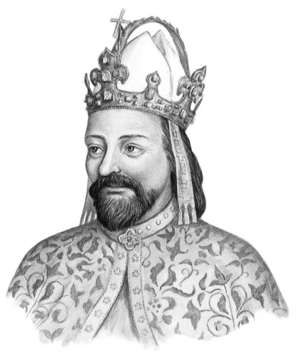History
"an integral part of Czech heritage"

Viticulture in the Czech Republic has a tradition that dates back over two thousand years. It is believed that the Celts were probably the first wine growers in the Czech Republic. The oldest evidence of viticultural history in Moravia is the archaeological discovery of a viticultural knife, thought to be used by a Roman legionary whilst farming vineyards around Pálava. Further information about viticulture dates back to the times of Great Moravia (ninth century to the early tenth century), from where it was introduced to Bohemia. Much of the credit for the development of viticulture in this country goes to the Czech King and Holy Roman Emperor Charles IV.
Charles IV.
The period between the 14th and 16th centuries, when vineyards surrounded Czech cities and monasteries, is considered to be the golden age of Moravian viticulture. However, major development of the industry came at the end of the 20th century. The restitution and privatisation of vineyards following the fall of communism led to the reintroduction of family winegrowing and establishment of new wineries.